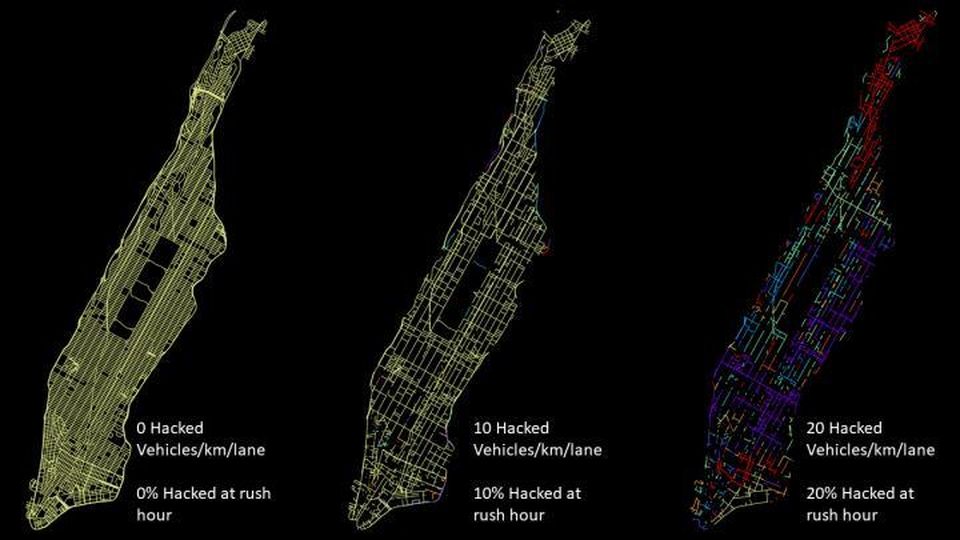By taking over even a small proportion of driverless cars, hackers can paralyze city operations, according to a study made by researchers from Georgia Institute of Technology.
Simulating traffic
For their simulations, the researchers used percolation theory typically used in materials science. In this context, the researchers modeled the streets as if the cars were flowing objects. Afterwards, they randomly stalled a certain percentage of cars and checked how the entire road traffic system will respond.
Worrying results
According to the researchers, depending on how much of the percentage of self-driving cars are compromised, the impact can greatly magnify:
- With 10 percent of cars hacked during rush hour, the streets will be blocked enough for emergency vehicles to be incapable of cutting through.
- With 20 percent of cars hacked during rush hour, the roads will completely freeze.

By 2026 where driverless electric cars are expected to be more popular, it is worrisome how such a small proportion of cars can completely immobilized cities. Imagine a situation where cars on the roads suddenly froze. This can affect a city’s economic output, threaten security, and even cost lives.
Damaging in paper, more damaging in practice
To make things worse, these simulations were made under the assumption that cars will only stop or go.
From our partners:
However, we know that cars will cross over lanes, people will panic, some will get out of their cars, and accidents may also arise.
Taking into account these other conditions, the percentage of electric cars needed to freeze the city streets can go down significantly according to lead researcher Peter Yunker, who is also a professor in the School of Physics at Georgia Tech.
Preventing chaos
“Our work is not in opposition to the future of connected cars,” according to Skanda Vivek, also one of the researchers.
“They hold tremendous potential for positive impact economically, environmentally, and for former drivers no longer frustrated by congested commutes, psychologically,” he continued.
Truly enough, this kind of threat is something that comes along with new technology. The solution is not to stop the innovation of electric cars on the whole.
Instead, we should find ways to prevent these destructive scenarios from happening now that we know that they are completely possible.
The main threat in the existing models of automated cars is their centrality.
“If no more than, say, 5 percent of connected vehicles were compartmentalized to the same network or utilized the same network protocols, the chance of citywide fragmentation would be low,” according to Vivek.
According to Vivek, doing such compartmentalization will require a tremendous effort from the hacker who have to execute simultaneous intrusions in one go. This will of course lessen the likelihood of our cities getting paralyzed.
The findings of this research reminds us of the need for continuous vigilance whenever new technologies are being deployed, especially when human lives or security can be compromised. Apart from a mind of innovation which can come up with ways to make things better, we also need a mind that takes into account how things can end up badly due to these innovations.













